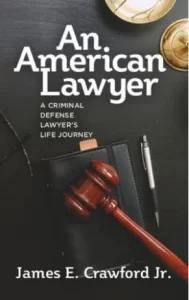Criminal Defense for Breaking and Entering Charges
With up to three years in jail for what might’ve been a simple mistake, breaking and entering charges can result in a fourth-degree burglary misdemeanor on your record.
Don’t let charges turn into convictions that can break your reputation and your future. JC Law will defend your side of the story from those who can only see in black and white.
What Do Laws Define as Breaking and Entering?
Laws consider “breaking and entering” a type of burglary offense—specifically, fourth-degree burglary.
Per Maryland code, someone can get charged with breaking and entering if they “break and enter” the dwelling or “storehouse” of another individual. The law also includes gardens and yards as areas that can be broken into.
The way the breaking and entering law is phrased sounds like a holdover from colonial America, but it’s purposefully expansive to cover a wide range of possible misdemeanors. Breaking and entering just needs to include a place where people are—where they dwell— or a place where they store things.
For example, a breaking and entering charge might be levied against someone breaking into:
- An occupied hotel room
- A bank vault
- A back shed
- An empty farmer’s barn
- A guest house
As a burglary-related criminal act, breaking and entering is often charged if law enforcement believes they can prove that the act was committed with the intent to steal, and indeed, the code explicitly forbids illegally breaking into a place with such an intent.
Can I Still Get Charged with Breaking and Entering If I Didn’t Steal Anything?
Oddly enough, actual theft doesn’t need to occur for someone to get charged with breaking and entering as a fourth-degree burglary charge.
The code covers both the actual breaking into someone’s “dwelling” or “storehouse,” and then later forbids someone from doing so with the “intent to commit theft.”
So, like many other parts of Maryland law, it’s the intent to commit a crime that can be punished, along with the actual act itself.
(As a side note, fourth-degree burglary charges also cover possessing a “burglar’s tool” with the intent to use it to either break and enter or steal stuff. You might want to avoid running around with lockpicks in the middle of the night.)
What’s the Difference Between Trespassing Versus Breaking and Entering?
Both trespassing and breaking-and-entering charges deal with people being where they’re not allowed.
However, trespassing doesn’t require quite the same amount of effort that a breaking-and-entering incident would.
For example, hunters may trespass through a property owner’s woods in pursuit of deer. Usually, there are no locked gates to break through in such a situation—just signs posted on trees that can be walked past.
The trespassing hunters weren’t allowed on the property, thanks to the signs, but did so anyway. Therefore, they can be charged with illegal trespassing.
On the other hand, if some teenagers wanted to steal their neighbor’s chickens and used even the slightest amount of force to enter a closed coop, then that incident could be breaking and entering.
- They “broke into” the coop because they used force, even if nothing was technically or permanently broken.
- They had the intent to steal from the property owner.
What Is the Possible Jail Time for Breaking and Entering?
Breaking and entering is a misdemeanor in Maryland. If convicted, you could go to jail for up to three years.
Remember, too, that if someone is charged with breaking and entering, they could be charged with other types of burglary or theft—even assault. If convicted of those crimes, as well, the sentence compounds.
So, you’d be looking at three years plus whatever other sentences for other convictions.
What Can a Criminal Defense Lawyer Do to Help with Breaking and Entering Charges?
Criminal breaking and entering cases often hinge on three components that prosecutors must prove beyond a reasonable doubt to secure a conviction:
- The defendant knew they weren’t allowed at the location;
- The defendant used some sort of force to enter the location; and
- (Sometimes) the defendant had the intent to burgle the place.
Therefore, criminal defense lawyers experienced with breaking and entering cases have three places to attack the prosecutor’s case.
For example, can a defendant know for sure that they weren’t allowed at a location? What if the owner only recently decided to rescind permission, and the defendant truly didn’t realize that they weren’t allowed there anymore?
And, how much force actually counts as a “forced” entry? The force required to throw a rock through a window, or the force needed to open a rusted door that accidentally busts a hinge?
Finally, unless a prosecutor is a mind reader, it can be extremely difficult to prove what someone intended by an action. Sure, the defendant was wearing black clothes as they came up the back garden – but their criminal defense lawyer can show that they habitually wear dark clothes.
Therefore, what might seem like visible indicators of a defendant’s intent are often more complicated than they first appear.
However, this sort of defense can be complicated if attempted by a defendant on their own. For your best chance at success, consult with a criminal defense lawyer to explain your situation and assess what the best sort of defense might be.
“James Crawford Jr. and Associates do a great job. They are very informative and helpful. The entire staff there have been great. They are responsive and have handled everything timely and with my best interest in mind.”
